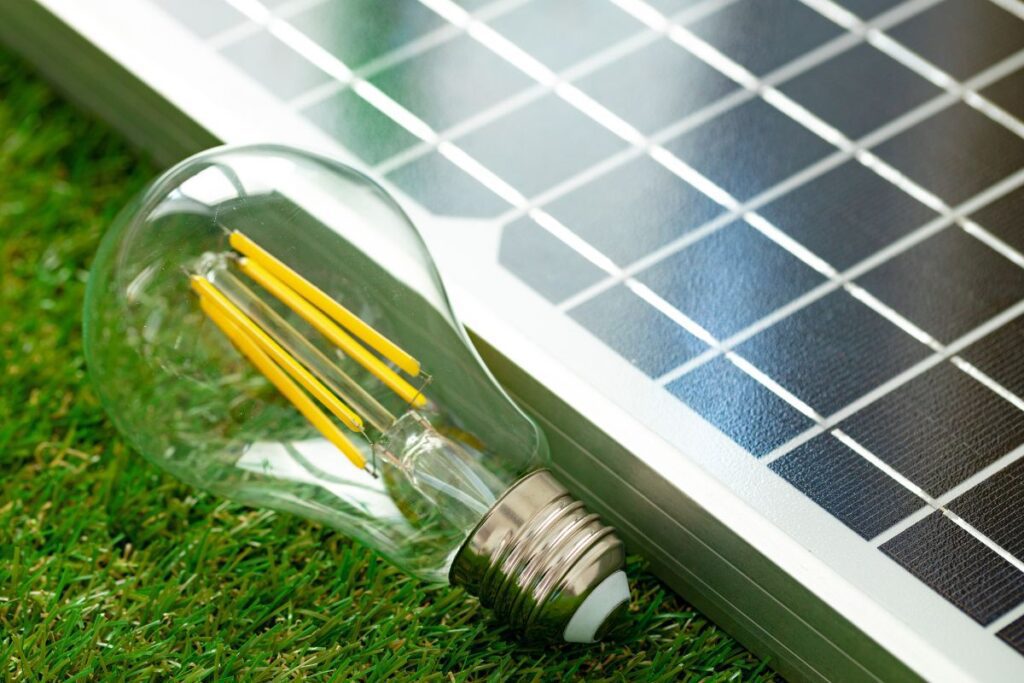Solar panel maintenance is crucial to ensure optimal performance and longevity. Clean your panels, check for shading, make sure your inverter is working right, and get an expert to help if something goes wrong. Follow these tips to keep your system running smoothly and maximize energy savings.

Cleaning Your Panels
It’s the big one. If your panels are covered with dirt and debris, they’re not going to be as efficient. Bird droppings, dust, leaves, and even snow coverage can block sunlight from hitting the solar cells, and that means less energy production. If you leave it too long, you’re just wasting power. It’s a simple way to keep your energy output up.
Here’s the thing to do:
You don’t need to pressure wash them. A pressure washer sounds like it’s going to do the job fast, but it can actually cause physical damage to the panels. Cracks in the glass? Not good. Instead, use a microfiber cloth or a non-abrasive brush to gently scrub the surface. Don’t overdo it. The goal is to remove the buildup, not to scrub every tiny speck of dirt off. Warm water with a little soap is all you need, nothing fancy.
One more thing, snow coverage.
If you live in Wisconsin, like we do here at Lehmann Electrical, you know snow can pile up fast. Snow can actually help your panels generate power once it melts, but if it stays on there too long, it’ll block sunlight. Use a soft broom to clear it off if it’s thick. Just don’t use anything sharp, or you’ll scratch the panel surface.
Check for Shading and Obstructions
Your solar panels need direct sunlight to work. So, if you’ve got a new tree or building causing shading on your panels, you’re going to see a drop in energy production. A lot of people don’t notice this at first, but it can really impact your system’s performance. Look around your solar array every few months and see if anything is blocking your panels. If you can, trim those branches or talk to your solar installer about moving the panels if needed.
You also want to be aware of things like debris buildup from trees, leaves, or even animal nests. If there’s anything hanging over or around the panels, that could cause some serious issues with both performance output and maintenance costs down the road.
Don’t Forget About the Inverter and Wiring
People forget about this part, but the solar inverter is a critical piece of your system. It turns the DC power generated by your panels into usable AC power. If the inverter isn’t working, it doesn’t matter how clean your panels are—it’s not going to help. If you’ve got a solar monitoring system or app, check the inverter’s performance. If it’s not working right, it’ll show up in your performance reports.
Also, check your electrical connections. A loose connection in the junction box or anywhere along the wiring could cause a problem. You’re dealing with electricity here, so this isn’t something to ignore. If the system starts acting up or the performance drops, this is a good place to start looking.
Inspect for Physical Damage
It’s easy to ignore cracks or chips in your solar panels because they might be small. But over time, these can lead to bigger issues. A crack in the glass can reduce wattage ratings and make the power system less efficient. If you notice any cracks, physical damage, or signs of wear, don’t just brush it off. A quick inspection can help catch those issues early, and it could save you a bunch of money down the line.
After any major weather events, like a strong storm, hail, or snow, installer’s the time to check for damage. If you live in a place with extreme weather patterns, make sure your system is up for the challenge. You want to avoid issues that might require a professional inspection later on, especially if it’s covered under your installer’s warranties.
Use Your Solar Monitoring System
If you have a monitoring system, use it. Some people just install it and forget about it. This is your tool to check the performance of your panels. If you’re noticing a drop in your system’s output, your monitoring system should tell you if something’s wrong.
Maybe it’s dirt on the panels, maybe it’s a deeper issue with the inverter or wiring. Either way, this is an easy way to spot performance issues early on before they turn into something bigger. Many of these systems even let you monitor the wattage ratings of your panels, so you can track exactly where things are going wrong.
Know When to Call a Pro
You don’t have to do everything yourself. You can inspect for debris buildup, clean your panels, and check for shading, but there are parts of the system that need an expert. If you’re dealing with things like electrical issues, junction box problems, or you just want a thorough check-up, call Lehmann Electrical solar specialist or service technician.
We know the stuff. We’ll check your solar inverter, electrical connections, and perform a more detailed inspection that you might miss.
In the long run, it’s cheaper to call a pro than to let small issues turn into big, expensive problems. We also give you advice on optimizing your system’s performance, making sure you’re getting the best return on your investment.
How Often Should You Perform Maintenance?
Well, at least twice a year is a good starting point. If you’re dealing with a lot of dirt, leaves, or snow, you might need to check more often. It doesn’t take long, and it can make a huge difference in how much energy you’re getting from your system.
You also want to take into account any energy costs or the cost of upkeep for your system. If you’re noticing that your energy bill is higher than usual, it might be time to check your system. Low energy production isn’t always a panel issue; it could be an inverter problem, or maybe something else in your system.
What Happens If You Don’t Maintain Your Solar System?
If you don’t maintain your system, you’re not just throwing money away on electricity; you’re also shortening the lifespan of your panels. A dirty panel, debris buildup, or any physical damage will all affect energy production. And if you’re neglecting the solar inverter or wiring, those problems can lead to complete failure. You might be dealing with performance output that’s far below what it should be, and that means higher bills and a less efficient system.
Plus, not maintaining your system can mess with your warranties. If something breaks and you can’t prove that you’ve kept up with basic care, your warranty could be voided. That’s a headache you don’t need.
Final Thoughts
If you’ve got solar panels, you need to take care of them. It doesn’t have to be hard, but it does need to be regular. Regular checks, using your solar monitoring system, and staying on top of small issues will help keep your system running at full capacity for years to come.
At Lehmann Electrical, we’ve got the experience and the team to help you with solar maintenance, from solar panel installation to full-service checks. If you’re in the Milwaukee or Waukesha areas, give us a call and we’ll make sure your system stays in top shape. Or visit our office. Get direction.
Q. Should I spray water on my solar panels?
Yes, you can spray water on your solar panels to clean them, but use a gentle stream. Avoid pressure washers as they can damage the panels.
Q. Will rain clean solar panels?
Rain can help wash away some dirt and debris, but it usually won’t do a thorough job. It may leave some spots or buildup behind that requires manual cleaning.
Q. Should I turn off solar in the rain?
No, you don’t need to turn off your solar panels in the rain. Solar systems are designed to handle all kinds of weather, including rain. Just make sure the system is properly grounded and maintained.
